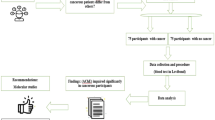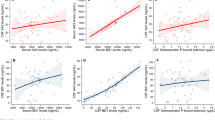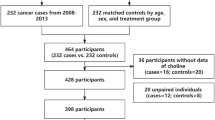Abstract
THE results of work presented here were obtained in connexion with a programme of Rh determination of the employees in the Veterans Administration Hospital when a concurrent analysis of their blood cholinesterase activity was being made. As a corollary to the examination of difference of blood cholinesterase activity between normal and schizophrenic individuals, a statistical assessment of the influence of age, sex, and race on the cholinesterase activity was also performed. This communication was prompted partly by the need for additional information concerning cholinesterase activity of whole blood in schizophrenics and partly by the controversy raised by the data and interpretation obtained from a small number of patients by Rubin1, suggesting that “acetyl cholinesterase inbalance may be a biochemical concomitant of the so-called ‘functional psychosis’.” This work received immediate criticism2 which was then answered by Rubin3 without, however, additional supporting evidence. Recently, Ellman4 found no difference on the basis of erythrocyte acetylcholinesterape levels between healthy and mentally ill persons. The available results on serum cholinesterase activity in mental diseases are equally at variance with one another5,6. Of interest is the extensive work of Kalow et al.1 on a genetic approach to the correlation of human serum cholinesterase to various factors.
This is a preview of subscription content, access via your institution
Access options
Subscribe to this journal
Receive 51 print issues and online access
$199.00 per year
only $3.90 per issue
Buy this article
- Purchase on Springer Link
- Instant access to full article PDF
Prices may be subject to local taxes which are calculated during checkout
Similar content being viewed by others
References
Rubin, L. S., Science, 128, 254 (1958).
Krech, D., Rosenzweig, M. R., and Bennett, E. L., Science, 128, 1176 (1958).
Rubin, L. S., Science, 128, 1176 (1958).
Ellman, G. L., Nature, 192, 1216 (1961).
Ravin, H. A., and Altschule, M. D., Amer. Med. Assoc. Arch. Neurol. and Psych., 68, 645 (1952).
Plum, C. M., Clin. Chem., 6, 332 (1960).
Kalow, W., and Staron, N., Canad. J. Biochem. and Physiol., 35, 1305 (1957).
Gal, E. M., and Roth, E., Clin. Chim. Acta, 2, 316 (1957).
Early, D. F., Hemphill, R. E., Reiss, M., and Brummel, E., Biochem. J., 45, 552 (1949).
Snedecor, G. W., Statistical Methods, fifth ed. (Iowa State Univ. Press. Ames, Iowa, 1961).
Kety, S. S., Science, 129, 1528 (1958).
Augustinsson, K. B., in Methods of Biochemical Analysis, 5 (Interscience. Publishers, New York, 1957).
Author information
Authors and Affiliations
Rights and permissions
About this article
Cite this article
GAL, E. Cholinesterase Activity of Whole Blood from Healthy and Schizophrenic Individuals. Nature 198, 1118–1119 (1963). https://doi.org/10.1038/1981118a0
Issue Date:
DOI: https://doi.org/10.1038/1981118a0
This article is cited by
-
Biological studies in childhood schizophrenia: Plasma and RBC cholinesterase activity
Journal of Autism and Childhood Schizophrenia (1971)
Comments
By submitting a comment you agree to abide by our Terms and Community Guidelines. If you find something abusive or that does not comply with our terms or guidelines please flag it as inappropriate.



